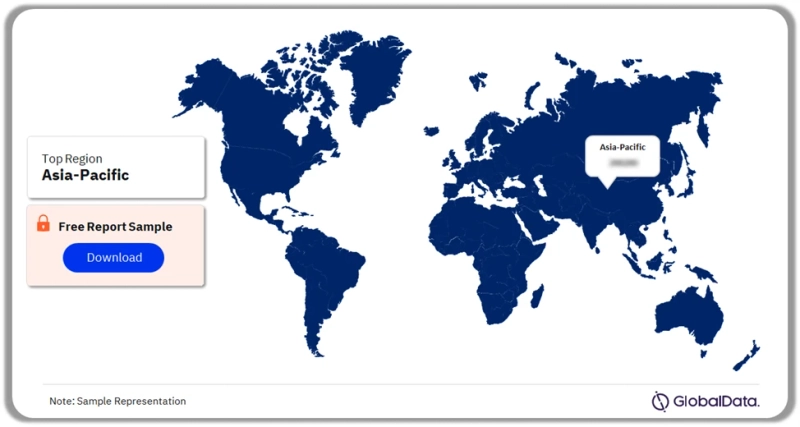In today’s digital age, data has become one of the most valuable assets for businesses across industries. With the exponential growth in data generation, the need for sophisticated tools and technologies to analyze and derive insights from this data has never been more crucial. This is where data analytics technology market comes into play, revolutionizing the way organizations harness the power of data to drive informed decision-making and gain a competitive edge in the market.
I. Introduction
In its essence, data analytics technology refers to the process of examining large datasets to uncover hidden patterns, correlations, and trends. By leveraging advanced algorithms and statistical techniques, businesses can extract valuable insights from their data, enabling them to optimize operations, enhance customer experiences, and identify new opportunities for growth.
II. Growth of Data Analytics Technology Market
The data analytics technology market has witnessed tremendous growth in recent years, fueled by the increasing adoption of big data analytics, artificial intelligence, and machine learning technologies. According to market research reports, the global data analytics technology market is projected to continue its upward trajectory, reaching new heights in the coming years.
Several factors contribute to this exponential growth. Firstly, the proliferation of digital devices and online platforms has led to a massive influx of data, creating a pressing need for robust analytics solutions to make sense of this information overload. Additionally, businesses are increasingly recognizing the strategic importance of data-driven decision-making, driving investment in analytics tools and technologies.
Market trends indicate a shift towards more advanced analytics capabilities, including predictive and prescriptive analytics, as organizations seek to gain deeper insights and make more proactive decisions. Moreover, the growing adoption of cloud computing and the Internet of Things (IoT) is expected to further accelerate the demand for data analytics solutions, as businesses look to leverage data from diverse sources for competitive advantage.
III. Key Players in the Data Analytics Technology Market
In the highly competitive landscape of the data analytics technology market, several key players have emerged as industry leaders. Companies like IBM, Microsoft, Google, and SAS Institute dominate the market with their comprehensive suite of analytics tools and platforms. These companies offer a wide range of solutions, including data visualization, predictive modeling, and data management, catering to the diverse needs of businesses across sectors.
IV. Applications of Data Analytics Technology
Data analytics technology finds applications across various industries, transforming operations and driving innovation. In the retail sector, for example, analytics is used to analyze customer behavior and preferences, enabling retailers to personalize marketing campaigns and optimize inventory management. Similarly, in healthcare, data analytics plays a crucial role in patient care, disease prevention, and medical research, leading to improved outcomes and cost savings.
Real-life examples abound of organizations leveraging data analytics technology to achieve tangible business results. For instance, Netflix uses sophisticated algorithms to recommend personalized content to its subscribers, enhancing user satisfaction and retention. Amazon employs predictive analytics to forecast customer demand and optimize its supply chain, ensuring timely delivery of products to customers worldwide.
V. Challenges and Limitations
Despite its immense potential, data analytics technology also presents several challenges and limitations. One of the primary concerns is data privacy and security, particularly in light of increasing regulations such as the General Data Protection Regulation (GDPR). Ensuring compliance with these regulations while extracting value from data remains a delicate balance for organizations.
Another challenge is the shortage of skilled professionals with expertise in data analytics and data science. As the demand for data-driven insights continues to rise, there is a growing need for talent capable of extracting meaningful insights from complex datasets. Addressing this skills gap through training and education initiatives is crucial for the long-term success of data analytics initiatives.
VI. Future Outlook
Looking ahead, the future of data analytics technology appears promising, with continued advancements in AI, machine learning, and big data analytics driving innovation. Emerging technologies such as edge computing and quantum computing are poised to further revolutionize the field, enabling real-time analysis of massive datasets with unprecedented speed and accuracy.
Furthermore, the democratization of data analytics is expected to accelerate, with the emergence of user-friendly tools and platforms that empower non-technical users to perform complex analyses and derive actionable insights. This democratization will democratize access to data analytics capabilities, enabling businesses of all sizes to harness the power of data for strategic decision-making.
VII. Conclusion
In conclusion, data analytics technology is a game-changer for businesses in the digital age, offering unprecedented opportunities to unlock the value of data and drive innovation. By investing in advanced analytics solutions and cultivating a data-driven culture, organizations can gain a competitive edge and thrive in today’s dynamic market landscape. As the data analytics technology market continues to evolve, staying abreast of emerging trends and embracing innovation will be key to success.
Buy the Full Report for More Geographical Insights into the Data and Analytics Market, Download a Free Report Sample



